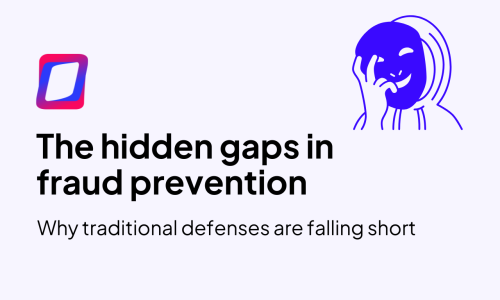 blog
blog
The Hidden Gaps in Fraud Prevention
Traditional fraud defenses are not enough to combat synthetic fraud. Explore how AI-driven, adaptive strategies can help lenders stay ahead.
Stay Linked Up with the latest developments in credit risk, decisioning and lending content. Keep on top of trends within the Fintech, Banking and Credit Unions industries.
 blog
blog
Traditional fraud defenses are not enough to combat synthetic fraud. Explore how AI-driven, adaptive strategies can help lenders stay ahead.
 blog
blog
Join GDS Link at CBA LIVE 2025 in Orlando from March 17-19 to explore innovative banking solutions and meet our experts.
 blog
blog
GDS Link launches a refreshed brand identity, emphasizing its commitment to empowering lenders with cutting-edge technology.
 blog
blog
Join GDS Link at Fintech Meetup 2025 to explore credit risk solutions. See how we can enhance your business’s lending operations.
 blog
blog
Learn how real-time data and AI transform banking, decisioning and risk management. Discover key steps to modernize your institution.
 blog
blog
Discover how 2025 could transform Open Banking in the UK with VRPs—learn about the opportunities and challenges ahead.
 blog
blog
Learn what PayTech is and how it is transforming the world of digital payments. Explore key innovations such as QR codes and mobile wallets.
 blog
blog
Break barriers in lending with modern solutions that enhance borrower experiences through automation and data integration.
 blog
blog
Credit unions are redefining ROI by prioritizing member value over profits. Learn how this approach drives meaningful results.
 blog
blog
Benefits, drawbacks, and major players dominating the P2P lending market